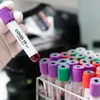In light of the prevailing global situation, many people spend a great deal of time worrying about their health and that of their families. And so it was only natural that a recent conversation with a close friend eventually turned to this topic. A working professional, he lives with and cares for his mother who suffers from hypertension.
While in normal times managing and caring for this ailment would not be an issue, the spread of coronavirus has meant that visits to a doctor or the hospital for their regular check-ups have either been put on hold or become a dangerous, stressful and time-consuming ordeal. That led him to purchasing a home blood pressure monitor. The convenience of the device, and the pressure it has lifted off his mind, is indicative of a wider societal shift in the future of home diagnostics.
Massive shift already happening
COVID-19 has had a major impact on how individuals view the healthcare system. The diagnostics sector has seen a steep fall in patient volumes since the start of this year. As per a joint assessment by the Federation of Indian Chambers of Commerce and Industry (FICCI) and Ernst and Young (EY), the operating losses for diagnostics labs in this quarter are estimated to reach between INR 600 and 2,200 crores.
But while the wider diagnostics sector prepares to suffer a long decline, the field of home diagnostics represents a silver lining in this new environment. According to a global leader in digital blood pressure home monitoring devices, sales of their products have increased by over 30 percent over the last several months.
In a similar vein, we at Inito, have also seen an increase of up to 25 percent in the number of fertility tests taken per user on our home fertility test.
According to a recent report by Snapdeal, the overall sales for the at-home diagnostic kits category on the platform between April and July this year more than doubled compared to last year.
This change is going to be permanent
Another friend of mine had recently decided the time was right to start a family with his wife. Unfortunately, after facing trouble conceiving they decided to visit a fertility clinic. In addition to the stress and anxiety of stepping out of the home brings in current times, the entire process itself was time-consuming and laborious.
When they were not tracking ovulation cycles and manually calculating fertile days, they spent their time scheduling endless appointments, ultrasound scans, and lab tests. The sheer burden of the entire experience was enough to make them look for alternatives, which is how they discovered the convenience of the home diagnostics process.
Through a simple urine test at home, they were freed from all the hassles. Their data was safely collected in a non-intrusive manner, analysed and processed by an AI-enabled app, and results returned with an extremely high level of accuracy.
As the pandemic continues to spread across the country, these sorts of situations have become all too common. This issue becomes especially pressing when one considers the importance of diagnostic testing in controlling and managing various medical conditions.
Home diagnostics is massively underpenetrated and is the future
Going forward, home diagnostics will reshape the way in which we view medical tests. This change will be permanent, with every house equipped with a single connected device capable of conducting these tests from the comfort of home, becoming as much a part of the household as a thermometer is today.
This is especially critical in India, given the escalating incidence of lifestyle diseases.
Take diabetes, for example. With over 77 million people in our nation suffering from the disease, India has the second-highest number of diabetics in the world, behind only China. For this enormous body of people, the HbA1c test (also known as the haemoglobin A1c or glycated haemoglobin test) is a vitally important indicator of how well their disease is being controlled that must be taken every three months.
With no home testing kit or device currently available on the market, diabetics must visit a diagnostics centre for the test. Failing to do so regularly can lead to the condition rapidly spiralling out of control, and yet many people have chosen to take this risk rather than venture out of the safety of their homes.
This pattern has repeated itself across a wide array of tests for various other conditions, like TSH that require constant monitoring, and frequently need lifelong medication and monthly level checks.
The ability to conduct testing from the house also completes the missing link in the shift of medical treatment online. Patients are now able to complete the entire sequence chain from home -- from testing to remote consultation and finally medicine delivery.
And with cloud connected devices, patients can directly share reports with doctors in an online consultation, have their prescriptions renewed, and await the arrival of medicines at their doorstep. A complete ecosystem by itself. The only reason to visit a lab in the future will be for complicated and one-off specialist tests.
The treatment of regular conditions through home diagnostics will gradually become a habit, as people realise the value and convenience they offer. By taking travel and waiting times out of the equation and instead getting straight to the testing phase, home diagnostics can give us millions of years back in our pursuit of health, at an equivalent or even lower cost.
(Disclaimer: The views and opinions expressed in this article are those of the author and do not necessarily reflect the views of YourStory.)
Link : https://yourstory.com/2020/10/healthcare-services-future-diagnostic-tests-home
Author :- Aayush Rai ( )
October 15, 2020 at 08:09PM
YourStory

